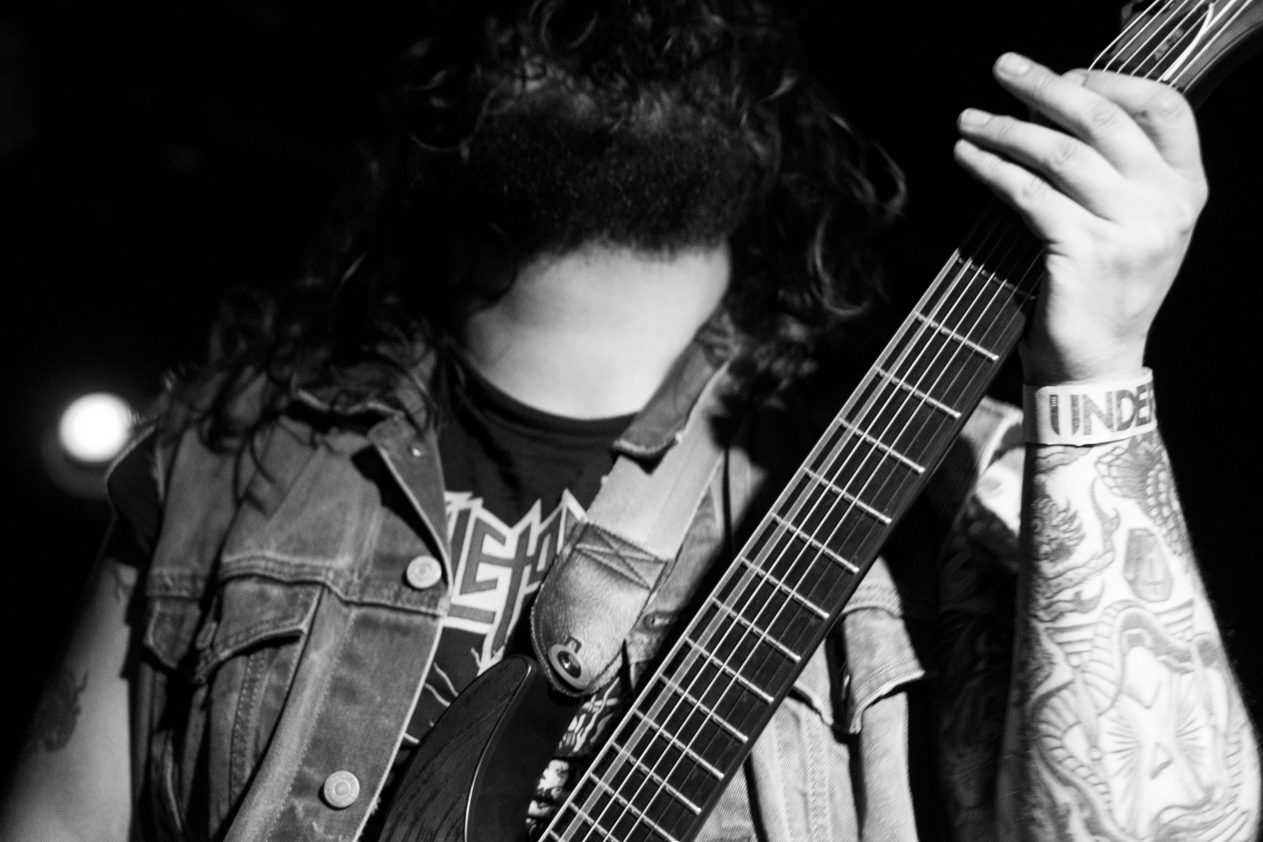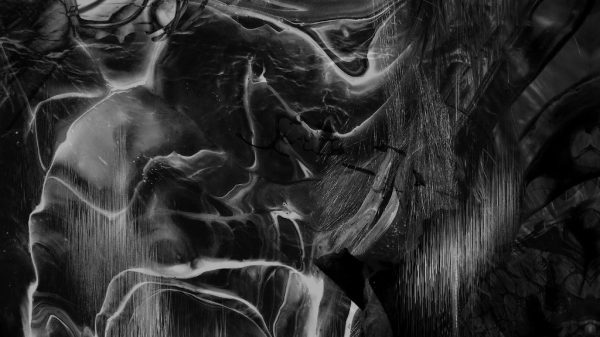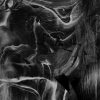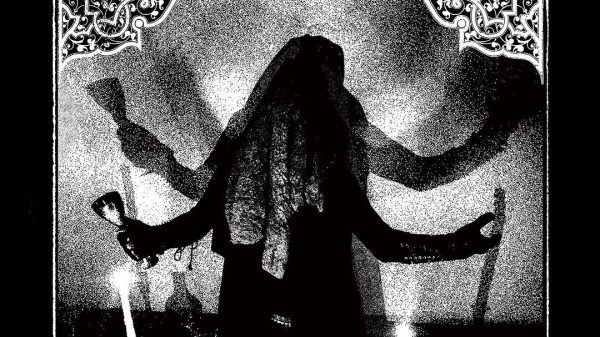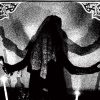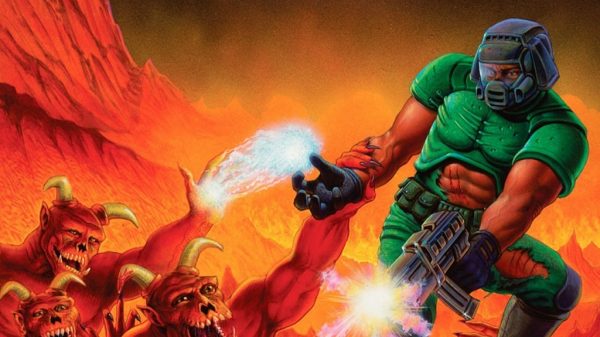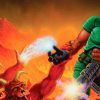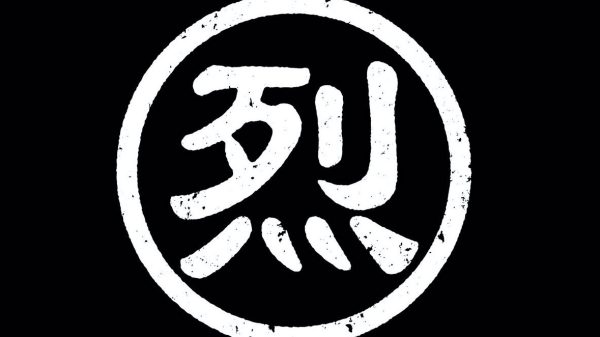Pallbearer emerged from Little Rock, Arkansas in 2012 with a stunning debut full-length, Sorrow and Extinction. The record, which played like a seamless 49-minute doom movement, melded pitch-perfect vintage sounds with a triumphant modern sensibility that made songs about death and loss feel joyfully ecstatic. Pallbearer possessed what many other newer metal groups didn’t: perfect guitar tone, classic hooks, and a singer who could actually sing.
Heartless (Pallbearer’s third album), is an inspired collection of monumental rock music. The band offers a complex sonic architecture that weaves together the spacious exploratory elements of classic prog, the raw anthemics of 90’s alt-rock, and stretches of black-lit proto-metal.
On April 2018 the band released the single Dropout, a song that represents a subtle expansion of the singular doom-prog metal sound the Arkansas outfit is known for.
Pallbearer have also released a sublime cover of the Pink Floyd classic, “Run Like Hell.” The track is part of a compilation in tribute to the iconic album, The Wall. Compiled by Magnetic Eye, the collection is called THE WALL [REDUX] and joining Pallbearer are Melvins, Mark Lanegan, Ruby the Hatchet and Mars Red Sky to name a few.
When I met the band in London, I wanted to know how they have been evolving as a band since their first album and understand what lies behind the process of creation of Pallbearer’s songs.
Heartless was released in March 2017. It’s been over a year. What has changed for the band since that album?
Devin Holt: Aged 20 years and five. We’re much older than when we started this process.
[Everyone laughs]
Devin Holt: It’s been a really good year with lots of good shows. And I think the reception has been mostly positive. So we’re happy to be where we’re at. We’re also kind of entering a new phase of writing.
Brett Campbell: Playing that stuff live helped us level up on our performance, I think. Because it was really, really hard to play.
With Heartless your lyrics have moved from the metaphysical to something more grounded. What inspires you regarding lyrics?
Brett Campbell: Pretty much the same stuff that always did, you know: life experiences, things going on in the world around us. Whenever we were working on the lyrics for Heartlessit seemed appropriate to be a little more straightforward rather than poetic. It just felt like the material and the subject matter really called for a more direct approach. But it’s the same sort of thing that inspired the previous album too. Personal struggles.
Devin Holt: It was also right smack in election season. We would step out of our practice space and write, talk about things and have a cigarette. And there was just this huge Donald Trump billboard that was just illuminated. This was before he’d won. There were kind of just these reminders about where the world was.
Talking about your last single, “Drop Out”, why did you choose to release just one song?
Brett Campbell: Well that was kind of just a one-off thing, because Adult Swim contacted us about doing a song for their singles series. They’ve got one every week for a year, I think. So yeah, we just wrote a song for that. Simple as that, really.
Devin Holt: Yeah, they bought us some studio time and we made the song and that’s it.
What was the creation process for that song?
Brett Campbell: I was sitting at my girlfriend’s apartment while she was at work and I was smoking a cigarette. And what became the verse rift kind of just popped into my head. That was a good starting point. I spent four or so hours working all the details out. And from conception to a demo on my iPad, it was about four or five hours. Just really quick.
And musically?
Brett Campbell: Yeah, drums, guitars and everything. And a vocal melody, but no lyrics. That usually comes later just because it usually takes a minute to foment in my mind.
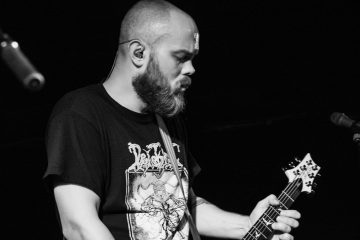
Marika Z.
What are the main differences between Drop Out and Heartless.
Brett Campbell: Heartless is very technical by our standards, and we spent a lot of time working out the arrangements and how all these different parts come together and break apart, creating all these musical dynamics. Dropout was just more or less a standard pop structure for the most part. We were just trying to experiment, really. At this point, making a regular song is so different for us that it’s kind of an experiment in itself.
But you keep the emotions…
Brett Campbell: Yeah. And it just felt right. It could have been something else. There were two months between making the demo and recording the song and I looked at it a few times to see if it needed a change or to make it more complex or something. But it worked out how it was.
Maybe it was easier to write just one song rather than an entire record.
Brett Campbell: Yeah, usually on the records we try to have just one giant piece. But I thought, this is a single, let’s make it a pop song.
Did you feel more free?
Brett Campbell: Sure.
Mark Lierly: I mean, the recording is faster.
Brett Campbell: Definitely. Since there is no other context than it’s own existence, yeah it was pretty freeing since it didn’t have to fit into a larger concept.
Joseph D. Rowland: Yeah, we didn’t have to think about how it would fit in with like five other songs on a record. It was just a stand-alone thing. As long as we felt that it fit in with what we conceive as being Pallbearer. And we all agreed that it made sense. Our influence isn’t what we want to do musically.
Sorrow and Extinction, Foundations of Boredom and Fear and Fury are different in many ways from Dropout and Heartless, in my opinion. What has changed in your way of writing.
Brett Campbell: Nothing that I’m aware of. I mean, things have changed over the years because life circumstances have changed. In the beginning we all lived in the same town, but Joe moved to Brooklyn before Foundations.
Joseph D. Rowland: I moved in 2015, so Foundationshad just been out.
Brett Campbell: So, that was different but that’s not new anymore. And it didn’t really prove to be a difficulty really.
Do you feel changed as a band from the beginning?
Devin Holt: We’ve gotten better, just on a performance level. When we began this band none of thought that we were going to be a professional band at all. Whatever happened we just rolled with the punches, but we had no idea. Now that we’ve toured so much and we’ve realized that this could be like what we do for a while, we’ve gotten better. We’ve honed in and all of us have gotten better at our instruments. And I think at least that idea is why Heartlessis kind of different than our other stuff because we wanted to challenge ourselves musically, whereas the first record is not musically or technically challenging. It’s vibey.
Joseph D. Rowland: It’s an emotional outlet, really.
Devin Holt: Yeah, and it’s not that Heartlessdoesn’t have that. But we try to get there through a different route. It sounds like Pallbearer but it’s more complex.

Marika Z.
And how did you end up with Profound Lore Records?
Devin Holt: It was Mike Meacham, the singer from a band called Loss. A funeral doom band from Nashville. Yeah, his band was on the label and then I think you guys were at a..
Joseph D. Rowland: A Pentagram show. And we met some of the guys from the band Loss and somehow it worked out that they had heard our demo, which we had just released like on a message board, essentially. They had heard it and they asked Brett to contribute some guest vocals on a song on a record that was going to be coming out the next year. And we were also in the midst of working on Sorrow and Extinctionat that point, so it just ended up being this natural progression of Chris, the proprietor of Profound Lore, becoming familiar with us and really interested in putting out our debut record then.
Devin Holt: It came at a really great and coincidental time. We had talked to a couple smaller labels that we weren’t very enthusiastic about but we were a new band, and it was like, hey why not.
Have you met Chris?
Brett Campbell: Yeah, many times now. But not at the time.
Joseph D. Rowland: We met him before Sorrow and Extinction came out.I guess we were already agreed on what was going to happen. It was like months before it actually came out.
Brett Campbell: We recorded the first one ourselves with our own money. And we were going to try to find a label to put it out and then that just worked out.
It’s normal for bands. You start with a DIY approach and then you need to find a label…
Brett Campbell: It helps.
Devin Holt: Networking, I guess.
Brett Campbell: We paid incrementally. We recorded once a month basically for a year. And the guy that recorded it gave us a really good deal. It was done really cheaply. If it had been on our own, just completely DIY it would have never have had a physical release.
Joseph D. Rowland: Also there were multiple completely wasted days of recording. We would get to the studio, over a weekend…
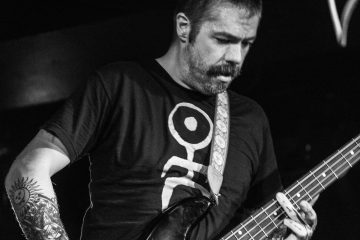
Marika Z.
Are you working on something new right now?
Brett Campbell: Well we’ve pretty much just been touring.
Devin Holt: Kind of.
Brett Campbell: We’re discussing the plans for stuff. But we haven’t really gotten deep into writing yet. We’re doing this tour, then we’re doing a tour with Tribulation back in North America, and after that we’re getting back into writing mode.
You mix elements of prog metal with doom metal. How important is this kind of musical experimentation to you?
Brett Campbell: Extremely important. That’s kind of the basis of what we are at this point. Even early on, when were more of a strictly doom, even then we were trying to incorporate as much outside influence as possible. Just because we listen to a pretty wide range of music. So it just naturally appears in our songs.
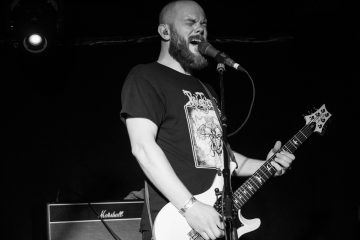
Marika Z.
What are your main influences?
Devin Holt: It’s all over the place.
Brett Campbell: It’s hard to say. There’s so many different things.
Devin Holt: Like classic prog, Rush, Pink Floyd, King Crimson, Cannibal. And then we listen to all kinds of metal too.
Brett Campbell: Country music, jazz, electronic music.
Devin Holt: Just everything.
How would you describe Pallbearer?
Devin Holt: We would just say heavy. It’s the best way to do it.
Joseph D. Rowland: Or like, Black Sabbath meets Pink Floyd.
Devin Holt: Yeah like if were on a ferry and a grandma comes up, that’s the easiest thing: Black Sabbath meets Pink Floyd.
Joseph D. Rowland: Any random person can know those two bands.
Devin Holt: It’s funny because we did a tour in Europe with Paradise Lost. Those guys have been at it forever. And on a ferry I was standing behind Steve, and then the guy that was serving breakfast asked the same question: What do you guys sound like? And his quick answer was Black Sabbath. Paradise lost doesn’t exactly sound like Black Sabbath but you just develop these quick answers to give to people.
Joseph D. Rowland: It’s way easier to explain two bands that we love and that most people know of than to try to be like, “Oh it’s a little bit of this…”
Brett Campbell: “But kind of like that, but not really…”
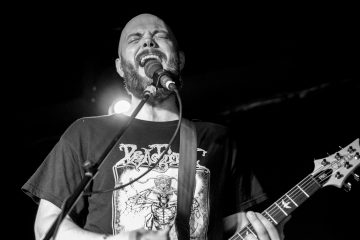
Marika Z.
So you’re on tour around Europe. What’s it like playing in Europe in comparison to playing in the US?
Brett Campbell: Often there’s better hospitality. I guess it kind of depends. There’s more varied culture from place to place.
Joseph D. Rowland: I think there’s a lot more emphasis and value on culture in general in Europe. In America, I don’t think people even think of music as being art.
Brett Campbell: It’s just something to fill in the background of a TV show. So I do appreciate that in Europe it seems like a lot of people do think of it as art instead of just some commodity that’s out there.
You guys are sharing this adventure. How is it spending so much time with the same people?
Joseph D. Rowland: Hilarious.
Devin Holt: It fucking sucks.
Brett Campbell: It’s terrible. Pure hell. [Laughs.]
Devin Holt: We end up finding ways to hang out even when we’re home alone. So I think we just have come to like one another pretty well.
Mark Lierly: Yeah, you say that…
But have you guys been friends forever or…?
Brett Campbell: Oh yeah.
Devin Holt: I didn’t know Mark before. But I knew these dudes and was friends with them before we started the band. And eventually I accepted Mark, somehow.
Joseph D. Rowland: And we’ve known each other for almost 15 years now. We’ve been playing music since day one. Since the very day that we met.
Are you planning a new record right now?
Brett Campbell: It will be a while. We’re still kind of discussing different strategies of how we want to approach our new material. So, it won’t be super soon, but…
Maybe 2019?
Brett Campbell: Yeah, maybe. Maybe the end of 2019. But we also just want to make sure that everything is as good as it can be.
Devin Holt: The problem isn’t about the well being dry. It’s like overflowing. We have a lot creativity going on right now, so we’re just going to sit on that and see where it’s going to take us. It’s a good thing. It’s not a scary thing. But we’re maybe wise enough to just kind of sit on it for a while. We’re not in rush to just come out with whatever we’re whimsically into right now. We want to make sure it fits within Pallbearer.
Yeah, I mean Dropout was release two or three months ago, so…
Brett Campbell: Yeah, we have more stuff coming out.
Joseph D. Rowland: There’s a couple other singles that will be coming out this year too.
Brett Campbell: We’re doing a thing for the Sub Pop Singles club. And then there’s sort of a comp. But it’s mostly just a bunch of fuzzies, heavy bands, Melvins, and Karma to Burn that are covering the entirety of Pink Floyd’s The Wall. So we did a song for that.
What’s your next plan for 2018?
Devin Holt: Just the Tribulation tour.
Mark Lierly: Probably this fall just start jamming.
Joseph D. Rowland: We’re playing with System Of A Down, as far as a I know.
Are they still alive?
Devin Holt: Apparently. And Incubus is playing too. All kinds of surprises in that show.
Mark Lierly: I’m probably going to get kicked out of the show for trying to talk to Incubus. They’re my favorite band…
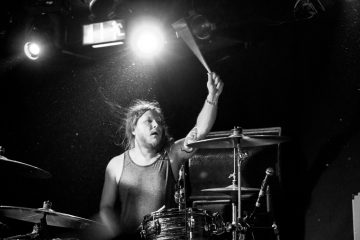
Marika Z.

